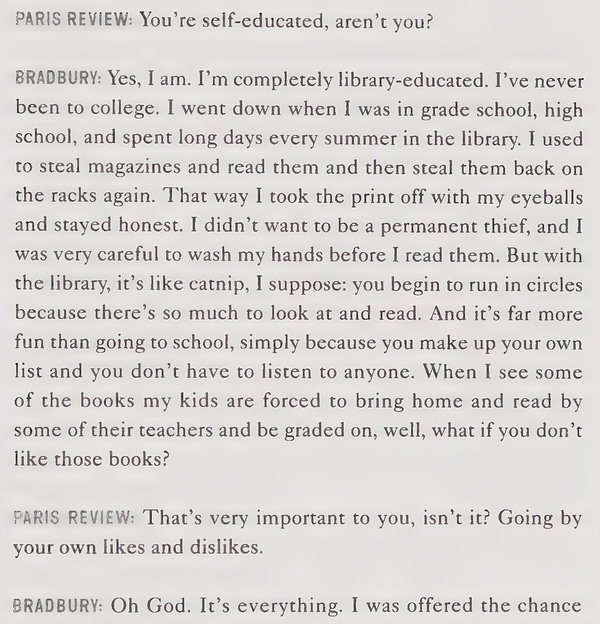The Amazing Things & Ideas - From relativist to fallibilist
At one point doesn’t everything seem relative? What even is truth if not that which is true relative to the person? This echoes the philosophy of relativism. It states that truth is relative to the individual. There is no absolute truth, according to the relativists. If there is one, we cannot know it. Because everything is relative to the individual, anyone and everyone has an equally justified truth claim; even if two claims clash, they are both true. Relativists, of course, do not make any absolute claims to truth. Except perhaps the claim that all is relative. Which is quite ironic. Back in May of 2021 when I was taking an absolutely brilliant online course on understanding Einstein’s Special Theory of Relativity, a giant epiphany struck me. Einstein’s (weird) paper in 1905 challenged Newton’s conception (which was widely held) that time was absolute. Exactly how did young Einstein criticize such an elegant theory? Why, with a thought experiment of course! The child-like sage imagined how it would be like to ride on a beam of light. Leaving the eccentric thought process that led to the creation of his theory behind and coming now to the actual theory, the Special Theory of Relativity says that space and time are relative. Time dilates and space contracts in “special” cases where the speed of light is involved. What you see and what I see is relative to each of us (i.e. to our place and speed). I was learning all this in the course. It was weird and took its time to make sense to my classically accommodated brain but it was very very interesting. Then one day, out of the blue, it dawned on me. Isn’t EVERYTHING relative? Of course the most profound bit of EVERYTHING was that it involved the mightiest of all, the capital-T Truth. Truth herself seemingly became relative to me then and there. I did not know then that relativism was a thing. I did not even bother to search about it. I was convinced that I had just formed an astounding new theory: the theory of “everything being relative”. Not so soon later, I discovered that the epiphany I had once had, on the relative nature of everything—Truth including—was actually the common idea of an age-old philosophy called relativism. I had simply extrapolated Einstein’s Special Theory of Relativity to EVERYTHING and surprisingly that certain thought overlapped with one of the most popular philosophical doctrines of all time. Then I sort of started to think of myself as a moral relativist. Of course I didn’t think EVERYTHING was relative. Nor did I think science and the laws of nature were relative in their intrinsic form. But I did believe that what people thought of as true or as good or bad was relative to themselves and their culture. Then I read The Beginning of Infinity by David Deutsch. And I’m no longer a relativist in any sense of the word. Firstly, right off the bat; relativism is self refuting. Which means it successfully refutes its own theory as false. If all is relative, I could say that all is not relative and I would be correct as looked at from the lens of relativism. Ironically then, at the heart of relativism is a seemingly absolute claim (“all is relative to the individual”). Next, relativists are impotent in the face of evil. They take all stances as equally true. They will non-judgmentally accept even the most objectively evil act possible as “good” if the people who commit the sin come with good intentions and themselves think they are doing good. Thus, relativists pose danger to civilization. (And that’s one reason why you do not see a relativist with high political power.) Now fallibilism, something I came across in the book, is the stance that you could be wrong. That unlike in relativism, there actually is something to be wrong about. Knowledge is never justified. It is conjectural and may turn out to be false. We cannot attain the ultimate Truth but we can always correct our errors. In embracing the fact that you could be wrong about something you realize the opportunity present for making progress (and improvement). That’s pretty much all there is to fallibilism. But the implications of this are immense. And this is also an easily misunderstood stance when first heard about. So let’s unpack a little bit. The common conception of knowledge is justified true belief (JTB). Which is that, knowledge or truth needs to be justified. This can either be done, think the justified truth believers, through evidence (if all I ever observe are white swans, then I can justifiably conclude that black swans do not exist because the evidence doesn’t suggest the existence of them), or through dogma (for example, whatever is written in the Bible is the word of God and hence is justified and true), or through the relative nature of things (believing that truth, morality and ethics are relative—so everyone’s stance is justified according to the context of their arrival at the conclusion). But this stance of JTB really breaks down easily and justifying knowledge or truth is really a pointless chase. Here’s why.
Out of them all, it is fallibilism that does not need any justifying, which, as established, is a futile task. Fallibilists think even our most precious theories could turn out false (i.e be falsified) with a better explanation of reality. Like Newton’s beautiful theory which was criticized by Einstein. We are all infinitely ignorant and that is what makes continual progress possible (and necessary!). Hence, fallibilists do not talk in terms of absolute nor relative truth. Only objective truth. Explanations and knowledge about the world could be falsified with proper criticisms to them. But even false theories can be useful. For example, we still launch rockets applying Newton’s (false) equations derived from his (false) theory. Solving problems through knowledge and making progress ad infinitum is at the heart of fallibilism. Relativism dismisses any act of judgment and justifies all claims to truth. Fallibilism rejects any form of authority and justification. And that’s why I am no longer a relativist (sorry Einstein!). This essay is from a post originally published on my blog on August 31, 2022. The Amazing Things & Ideas List1. Book I’m unlearning a lot fromWhat Has Government Done to Our Money? by Murray N. Rothbard Why do we consider that money—alone among all commodities—needs to be carefully regulated by a central government and cannot be left to the invisible forces of the free market? Rothbard wrote so simply all the while conveying ideas that are profound. I’m really enjoying this book. You can get a digital copy/PDF of the book for free here. 2. Older podcast I’m listening toA gem from the archives. Brian Norgard is the architect behind the highest-grossing mobile app in the world. Getting an insight into the way he thinks is fascinating.  3. Reading books you don’t like In a 1976 interview, Ray Bradbury talked about the joy of his self-education in the library (which now would be the internet), and he clearly found it problematic that children are made to read books they dislike.
Going by your own likes and dislikes: “It’s everything.”
Yes! 4. Why we need good science fiction
Thank you for reading.I’ve got to meet the coolest people through work I’ve published on the Internet. Don’t hesitate to reach out by replying to this email or by sending me a DM on Twitter. If you enjoy my newsletter, the best way to support it is by sharing it. And if you have the means, please consider buying me a coffee. Onward, The Amazing Things & Ideas Newsletter is free today. But if you enjoyed this post, you can tell The Amazing Things & Ideas Newsletter that their writing is valuable by pledging a future subscription. You won't be charged unless they enable payments. |
Older messages
To be wrong is to be free
Sunday, January 29, 2023
Oh, the beauty of being wrong...
Is "Studies show..." the new "The Bible says..."?
Sunday, January 22, 2023
Our knowledge of the world is not certain. People are fallible. We make errors. But this is not a depressing view of us cosmically significant entities.
079 The War Against Nature
Friday, January 20, 2023
Nature (eventually) weeds out bad ideas.
078 The one who changes the world
Sunday, January 8, 2023
+ Chasing dreams, denying the inevitable, podcasts, and psychological innocence
077 Casual friends
Sunday, January 1, 2023
It's possible to have lots of communication but no connection.
You Might Also Like
eBook & Paperback • Demystifying Hospice: The Secrets to Navigating End-of-Life Care by Barbara Petersen
Monday, March 3, 2025
Author Spots • Kindle • Paperback Welcome to ContentMo's Book of the Day "Barbara
How Homer Simpson's Comical Gluttony Saved Lives
Monday, March 3, 2025
But not Ozzie Smith's. He's still lost, right?
🧙♂️ Why I Ditched Facebook and Thinkific for Circle (Business Deep Dive)
Monday, March 3, 2025
Plus Chad's $50k WIN ͏ ͏ ͏ ͏ ͏ ͏ ͏ ͏ ͏ ͏ ͏ ͏ ͏ ͏ ͏ ͏ ͏ ͏ ͏ ͏ ͏ ͏ ͏ ͏ ͏ ͏ ͏ ͏ ͏ ͏ ͏ ͏ ͏ ͏ ͏ ͏ ͏ ͏ ͏ ͏ ͏ ͏ ͏ ͏ ͏ ͏ ͏ ͏ ͏ ͏ ͏ ͏ ͏ ͏ ͏ ͏ ͏ ͏ ͏ ͏ ͏ ͏ ͏ ͏ ͏ ͏ ͏ ͏ ͏ ͏ ͏ ͏ ͏ ͏ ͏ ͏ ͏ ͏ ͏ ͏ ͏ ͏ ͏ ͏ ͏ ͏ ͏ ͏
I'd like to buy Stripe shares
Monday, March 3, 2025
Hi all, I'm interested in buying Stripe shares. If you know anyone who's interested in selling I'd love an intro. I'm open to buying direct shares or via an SPV (0/0 structure, no
What GenAI is doing to the Content Quality Bell Curve
Monday, March 3, 2025
Generative AI makes it easy to create mediocre content at scale. That means, most of the web will become mediocre content, and you need to work harder to stand out. ͏ ͏ ͏ ͏ ͏ ͏ ͏ ͏ ͏ ͏ ͏ ͏ ͏ ͏ ͏ ͏ ͏ ͏
mRNA breakthrough for cancer treatment, AI of the week, Commitment
Monday, March 3, 2025
A revolutionary mRNA breakthrough could redefine medicine by making treatments more effective, durable, and precise; AI sees major leaps with emotional speech, video generation, and smarter models; and
• Affordable #KU Kindle Unlimited eBook Promos for Writers •
Monday, March 3, 2025
Affordable KU Book Promos "I'm amazed in this day and age there are still people around who treat you so kindly and go the extra mile when you need assistance. If you have any qualms about
The stuff that matters
Sunday, March 2, 2025
Plus, how to build a content library, get clients from social media, and go viral on Substack. ͏ ͏ ͏ ͏ ͏ ͏ ͏ ͏ ͏ ͏ ͏ ͏ ͏ ͏ ͏ ͏ ͏ ͏ ͏ ͏ ͏ ͏ ͏ ͏ ͏ ͏ ͏ ͏ ͏ ͏ ͏ ͏ ͏ ͏ ͏ ͏ ͏ ͏ ͏ ͏ ͏ ͏ ͏ ͏ ͏ ͏ ͏ ͏ ͏ ͏ ͏ ͏ ͏
Food for Agile Thought #482: No Place to Hide from AI, Cagan’s Vision For Product Teams, Distrust Breeds Distrust
Sunday, March 2, 2025
Also: Product Off-Roadmap; AI for PMs; Why Rewrites Fail; GPT 4.5 ͏ ͏ ͏ ͏ ͏ ͏ ͏ ͏ ͏ ͏ ͏ ͏ ͏ ͏ ͏ ͏ ͏ ͏ ͏ ͏ ͏ ͏ ͏ ͏ ͏ ͏ ͏ ͏ ͏ ͏ ͏ ͏ ͏ ͏ ͏ ͏ ͏ ͏ ͏ ͏ ͏ ͏ ͏ ͏ ͏ ͏ ͏ ͏ ͏ ͏ ͏ ͏ ͏ ͏ ͏ ͏ ͏ ͏ ͏ ͏ ͏ ͏ ͏ ͏ ͏ ͏ ͏ ͏
Pinterest For Authors 📌 30 Days of Book Pins 📌 1 Each Day
Sunday, March 2, 2025
"ContentMo is at the top of my promotions list ... "I'm amazed in this day and age there are still people around who treat you so kindly and go the extra mile when you need assistance. If

